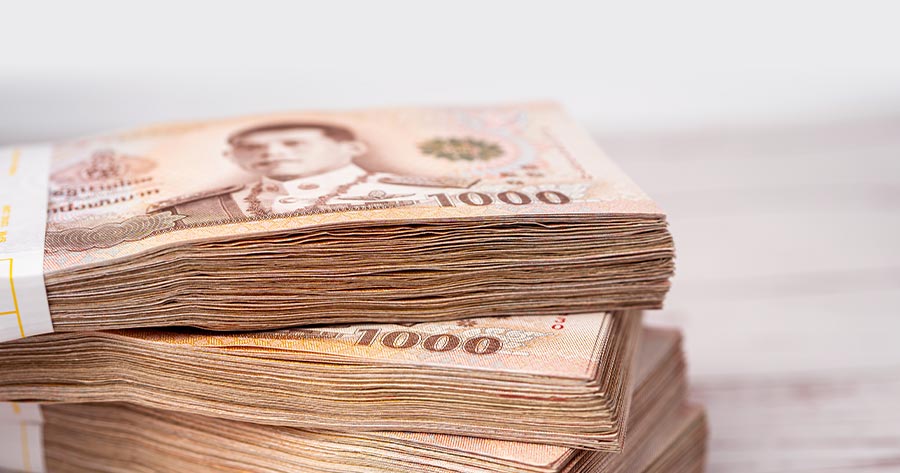Thai baht traded steadily on Monday after falling to a three-month low last week as the U.S. dollar strengthened amid mounting prospects of a recession in major economies after policymakers said the Federal Reserve may need one or two more rises in rates later this year despite pausing the hikes in June.
At the opening market on Monday, the baht was trading at 35.22 to the dollar, compared to Friday’s closing rate of 35.23, breaking the 35-baht-per-dollar level and reaching a three-and-a-half-month low.
In the past few weeks, the baht has been under pressure from both domestic and international issues. The political upheaval since the election on May 14 has been the main domestic concern, as the coalition of pro-democracy parties that got the most seats is still struggling to form a government. As for external risks, central banks continue to increase interest rates, causing concerns about recession, while inflationary pressure remains.
Several analysts anticipate a prolonged depreciation of the Thai baht as the dollar remains strong against six other major currencies as a result of disappointing inflation data and economic reports from both the European Union and the U.S., coupled with a political turmoil in Russia over the weekend.
Economists at Siam Commercial Bank, however, have suggested that the influx of tourists, particularly from China, in the second half of the year will serve as a positive catalyst to revive the baht in the following month.
According to Poonyawat Sreesing, senior economist at Siam Commercial Bank in Bangkok, “a significant influx of tourists in the second half can contribute to a surplus in the current account by boosting tourism receipts, which will positively affect the value of the baht.” He predicted that by the end of the year, the baht may be priced as much as 32 per dollar, a 10% increase over its current value.





